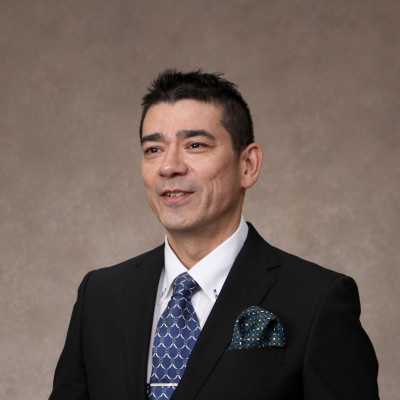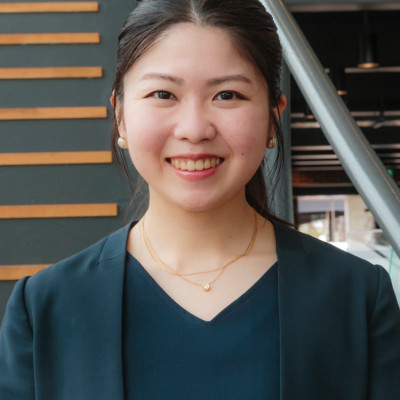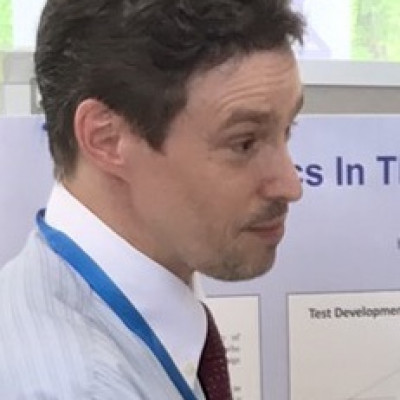Sessions / Teachers: Research Practice / Talk 研究/実践についての話し合い 25 minutes / 25分
A little birdie told me…Cultivating features in online learning tools #3932
Implementing gamification techniques in my courses using online tools such as Quizizz and Quizlet has been an incredible experience in witnessing my students’ increased engagement and motivation. There have been a number of challenges along the way, yet I always take pleasure in exploring their features. One of the key elements I have discovered to heighten students’ motivation and improve learning outcomes is carefully observing and listening to my students. Existing research has given me insights into how I use the online tools, but the main inspiration has been from my students, the little birdies. Their comments are invaluable. The default or basic use of each online application provides an adequate gamification experience; however, it does not stimulate learner autonomy over time. I would like to recount some specific comments (encounters) from my "birdies" and introduce how they enlightened me: updating and progressing the use of Quizizz and Quizlet. Furthermore, I would like to discuss how two kinds of motivation, extrinsic and intrinsic, are incorporated with the online tools, and how these integrations are promoting learner autonomy.
Fostering Student Independence Through A Community Revitalization PBL Class #3969
The presenters facilitate a Project-Based Learning (PBL) course centered on student discovery of local issues and community revitalization at a regional national university in Japan. From 2021 to 2023, students worked with a local experiential travel organization to promote its activities and the surrounding area to a domestic and international audience. The presenters will outline the first and second iterations of the course. In the first iteration, travel and direct engagement within the community were limited due to the COVID-19 pandemic, thus students focused on multilingual promotion using SNS platforms. Students of the second iteration actively researched the challenges faced by organizations and institutions in the area and worked with them and relevant government agencies to create two multilingual events and a promotion pamphlet. The presenters will describe the development of metacognitive skills in students (such as planning, problem-solving, and active listening) based on observation and student reflections. Then, the presenters will share examples of students gaining independence through their engagement with cooperating organizations and local government entities. They will conclude with future directions for the course and ways their findings can be integrated into similar community revitalization and international promotion projects.
Language Teacher Wellbeing in Times of Change. #3984
Our physiological states and emotions can often be described as “contagious” for the learners we teach (Mercer & Dörnyei, 2020); therefore, if teachers bring negative emotional states to the classroom such as stress or anxiety, learners will likely not fully engage. Wellbeing is a state of being comfortable, healthy or happy, which is not static and fluctuates over time (Mercer & Gregersen, 2020); thus, consistently acknowledging one’s wellbeing is fundamentally important. When COVID-19 hit, English language teaching was disrupted with many teachers required to move towards an emergency remote teaching environment, which caused change and challenges. With the balance between professional and personal life challenging to manage (Pourbahram & Sadeghi, 2022), the pandemic and emergency remote teaching likely influenced teacher wellbeing. With virus restrictions relaxed, institutions have now transitioned back to the physical classroom. This presentation reports on English language teacher perspectives concerning their wellbeing during and after emergency remote teaching. Quantitative data were analysed with Kern's (2014) Workplace PERMA-Profiler in connection with Seligman's (2011) PERMA model consisting of 5 core areas of wellbeing - Positive emotion, Engagement, Relationships, Meaning, and Accomplishment. Negative Emotion and Health were also incorporated in the survey.
Strategies for Developing Student Research Skills in an EMI Seminar #3995
Teachers of seminar classes in Japanese universities often encounter the challenge of students' difficulties with critical thinking and research skills. This presentation will outline a unit teaching research skills in an introductory EMI seminar. Previously, the focus was on explaining the present by looking at the past, but is evolving into a multifaceted, skills-based unit to better address student needs. This presentation gives a preliminary report on this new unit. Over the course of the seminar, teachers introduce three strategies of analysis: comparing sources, identifying stakeholders, and developing conceptual awareness. For each strategy, students prepare independently, then complete group activities to scaffold the methods which highlight their importance. Students then produce a final group project based on a recent news story of their choice, with the aim of utilizing the analytical skills developed through the project. Challenges were primarily in students’ difficulties in drawing connections to bigger, complex concepts. To improve effectiveness, we propose more time for in-depth exploration and integrating materials from other classes to promote holistic development of critical thinking. The presentation aims to offer a concrete approach to teaching critical thinking, analysis, and research skills.
Introducing Glocal Issues Education via a Project-Based Learning Approach #3970
Guided by some valuable lessons learned since the launch of a Project Based Learning (PBL) core curriculum at a Japanese university in Spring 2021, this presentation will introduce participants to some of the educational challenges and subsequent benefits that emerged as a result of adopting a university wide PBL approach to Glocal Issues Education.
Compulsory for all first-year students at the university in question, the objective of this new program is to introduce students to a set of practical (and transferable) real-life skills required to actively and successfully take part in the study of current global and local issues through the use of English.
Commencing with the need to create an in-house textbook designed to meet the specific requirements of this new program, participants will also be introduced to a framework that will demonstrate that the use of PBL can provide learners with an interactive, communicative, and effective way to approach Glocal Issues Education.
In sum, this presentation will be of particular interest to college and university level educators who may wish to integrate a PBL approach to the study of current issues within the context of their own English as a Foreign Language (EFL) classroom.
Cambodia: Challenges and Collaborative Projects for Growth & Education #3989
The presenter will outline challenges faced by a national university in rural Cambodia. He will discuss a developmental project that has led to ongoing collaboration with Cambodia's Ministry of Education, Youth and Sport (MOEYS) and a rural university.
He will discuss two future projects. The first involves the development of a local agricultural product to improve its quality and foster entrepreneurial skills among local producers, leading to the creation of a local brand. This project targets include establishing and registering a unique breed, evaluating soil quality, providing guidance on cultivation techniques, standardizing fruit quality, and facilitating brand creation and business planning. The participants will require basic English language skill that are directly applicable to the intended learning and training outcomes. As such, training for the language support staff in the Project Based Learning (PBL) for an English language support program will be one of the key preliminary objects of this project. As a newly established university with few faculty members with advanced degrees, and research cooperation is essential to train young faculty members.
The second project aims to empower local youth with computer, entrepreneurial, marketing, and English language communication skills to create sustainable local economic opportunities through tourism. This will necessarily include the development of an independent PBL framework and peer learning network with student groups and the community cooperative to ensure English that insufficient language competency does not become a barrier to the project goals. By partnering with a local university and leveraging their expertise, this initiative seeks to mitigate youth migration to Phnom Penh and the Cambodian-Thai border, where exploitation is prevalent.
Finally, an open discussion will seek input and expertise from attendees, with the aim of fostering potential collaborations among interested participants.
SDGs: Community learning in Okayama and the Setouchi region #3990
This presentation will describe a course called ‘Community learning in Okayama and the Setouchi region’ that took place from April to July in 2023. It is one of several courses that make up a new international SDG master’s program at Okayama University. The students on the course are from Laos, Taiwan and Thailand.
The course was divided into two parts. In the first half the presenter coordinated weekly teacher- and student-chosen readings and online discussion in English about the SDGs. In the second half, the class visited three organizations in the Okayama area that foreground the promotion of SDG related activities in their business models. These three organizations were a garbage recycling company, a wild animal fur and leather company, and a bamboo furniture company.
After each discussion lesson and each site visit students submitted a one-page reflection on what they had learned (nine short reports in total) and submitted a 1,000-word report describing a problem and solution connected to their home countries.
This presentation will briefly describe the course, discuss its successes and challenges, and make suggestions for the future. This information should be useful for any teacher wishing to include community learning in their courses.
A Collaborative Case Study Approach to Japanese Social Issues #3960
With the Japanese government’s decade-long initiative to cultivate global human resources, foreign language proficiency and Cultural Intelligence (CQ) remain essential goals in EFL classrooms. Collaborative case studies conducted at the group level have the potential to provide students with the opportunity to delve deep into content and target specific language learning goals. Third-year students in a CLIL class completed various case studies connected to Japanese social issues to increase their knowledge and empathy of their home culture as a basis for improving intercultural competence. Through this approach, students also improved some advanced communicative goals while engaging critically with the content.
The case studies outlined in this presentation have been designed and implemented to prepare students for potential future international work environments, meet specific linguistic benchmarks, and fulfil curriculum requirements. Over a semester-long seminar-type class, students undertook specially tailored case studies that required them to collaborate through researching, problem-solving, planning, and negotiating.
This presentation will outline the rationale for collaborative case studies and how they were designed and implemented. This approach was used over four academic years to gauge if a greater understanding of one’s home culture improves cultural intelligence and sensitivity. The presenter will offer observations on the effectiveness of this approach.
Int'l Ss' growth through autonomous situated learning in TL socializing #3959
Study abroad (SA) has become widespread. Most international students (Int'l Ss) are assumed to want to improve their target language (TL) skills and other related skills/knowledge by interacting with locals and people from other countries. This is referred to as situated learning (Lave & Wenger, 1991). However, TL-mediated socializing opportunities are not automatically taken for granted (Kinginger, 2009). The presenter investigated how Int'l Ss construct their own TL-mediated socializing opportunities and can grow through socializing as his longitudinal qualitative study. He collected qualitative data from nine Japanese undergraduate students who studied in English-speaking countries for short or long periods before, during, and/or after their SA using multiple research techniques. The main findings show that Int'l Ss lived in dynamically changing social environments and that each research participant developed his/her social networks in three patterns (gradual, click, and thin or loose) and then succeeded in co-constructing his/her TL-mediated affinity spaces (Gee, 2004) in different contexts. He also found that their TL-mediated socializing could be ecologically co-constructed by four categories of factors. Furthermore, he clarified that TL-mediated socializing enabled the students to grow as TL users. The presenter will discuss how to promote Int'l Ss' situated learning through socializing.
Comprehensive Student Preferences for L1/L2 Usage in an EFL Classroom #3972
In previous studies, researchers have argued that teaching in the target language (L2) is the most effective approach (Krashen & Terrell, 1983, p. 9). Recent studies show, however, that using students’ language (L1) can offer a variety of benefits to language learners (LLs) (Leeming, 2013; Bartlett, 2017; Inada & Inada, 2021). In the following presentation, I will present the results of the first stage of a long-term data collection, which explored university LL perspectives regarding English-only and Japanese-only lessons. In this study, students enrolled in compulsory English lessons at a Japanese university completed a survey at 3 different times throughout the first semester. Results from initial data collection show that students prefer neither L1- nor L2-only lessons, but a mixed usage of both. The presentation will conclude with advice for language teachers. Specifically, how to find balance in your language use, and how your language use can affect learner development.
The Effects of Role Conflict and Role Ambiguity on Eikaiwa Teachers #3939
Eikaiwa teachers experience workplace issues that can be understood as role conflict and role ambiguity. Role conflict refers to the dueling pressures between roles that can cause poor results or the incompleteness of one or both roles. Role ambiguity refers to the lack of clarity of a role, which may result in the role not being performed appropriately. Both role conflict and role ambiguity have been found to be predictors of symptoms of burnout. In this study, Eikaiwa teachers were interviewed to examine if role conflict and role ambiguity were present and how symptoms of burnout were connected to these experiences. The results showed that workplace issues, such as lesson preparation versus the amount of time they had during their working hours to plan the lessons, led to teachers experiencing role conflict. An example of role ambiguity included little to no training that participants received. This in turn left them with little understanding on how to perform their responsibilities in the school. Results also showed that these examples did lead to participants experiencing symptoms of burnout. Results of this study may be useful for teacher development in terms of initiating change and taking action to create a better working environment.
Exploring Emerging Ecologies of Older Adult Language Learning #3992
This research explores the factors involved in the emergence of an independently organised informal language learner group in a community centre in Japan. The methodology applies PPCT (Process-Person-Context-Time) from Bronfenbrenner’s bioecological approach to provide a detailed perspective of the people and the settings over time to show how these factors interact to construct an emergent learner group. Multiple data sources were used, eliciting information about life experiences, beliefs, and opinions about language learning. The analysis looks at how and why this specific learner ecology emerges and how it can inform lifelong learning and healthy ageing policy. The findings show that by engaging in second language learning, the participants find meaningful involvement in the group by welcoming self-expression, diversity, and support through factors of resilience, self-management, and agency. The result is the emergence of a multilingual, multicultural, and multigenerational place of inclusion within the community. Willingness to Act is shown to be dependent on Power to Act, mediated by factors of Support, highlighting the dynamic interplay of factors outside the learner group. The research also shows the social importance of creating opportunities for autonomous informal language learning settings in the community while highlighting the impact of agency for older adults.
Facilitating Practitioner Research in a Japanese University Context #3982
Faculty Development (FD) in universities is mandated by the Japanese Ministry of Education yet what constitutes FD is not clearly defined. This means that the ways in which ‘development’ is interpreted by and implemented by institutions, and the underlying purposes of such FD programmes, may not always meet the requirements of classroom practitioners. Language teachers themselves also need to navigate their own professional development pathways, balancing the demands of hiring institutions and their own personal interests as practitioner-researchers. This can be particularly challenging for time and resource poor teachers working the part-time circuit.
Speaking from his position as programme coordinator for a university-wide language centre, the presenter will outline what can be done to create an environment conducive to practitioner-led, inclusive research. Issues under discussion include mutual mentoring, broader definitions of what constitutes research and research writing, and support for classroom practitioners in sourcing funding, meeting ethical requirements, and finding opportunities to collaborate with peers.
Learner development through peer tutoring #3988
Learner development can occur beyond the classroom in both academic and non-academic realms. This study looked at development achieved by students in their role as peer tutors. The 34 tutors provided feedback on 2006 peer tutorial sessions and reported learning about their tutees, about tutoring and about the subject being tutored. Tutors reported learning about tutoring (558 comments), about qualities or characteristics of tutees (391 comments), about the subject matter being tutored (214 comments), about learning strategies (64 comments) and increasing their understanding of the curriculum (10 comments). The comments demonstrate increasing competence in tutoring skills, understanding of different learning styles, strategies and study methods, understanding the curriculum at the university and more nuanced understanding of subject-specific knowledge. The results of this research provide detailed insight into the kinds of development achieved by tutors through peer tutoring. The presenter will outline the research methods and results, as well as discussion and implications of the results for learner development of peer tutors.
Enhancing Student Development through Project Based Learning (PBL) #3952
Project-based learning (PBL) provides students with opportunities to enhance their proficiency in the target language through vocabulary building, as well as spoken and written communication. Students can also potentially develop other skills. For example, by investigating an issue, processing and organizing material, and developing a final product, learners can explore content in a meaningful way and bolster their researching, note-taking, and critical thinking skills. In this presentation I will discuss the implementation of individual and group-based projects in a first year, Japanese university classroom focusing on global issues using a five-stage framework proposed by Stoller and Myers (2020). Data from the students’ reflective journals and questionnaires regarding their projects will be highlighted in order to give insights into the students’ development, as well as their attitudes and opinions about doing the projects. It is hoped that this presentation will encourage meaningful discussion about the use of PBL and will be of use to teachers who are interested in implementing, or looking for new ways of developing PBL in their language classrooms.
Translanguaging and Exploratory Practice for Motivation and Participation #3961
This presentation will present findings and observations from a 3-month teacher-led exploratory practice study that utilized translanguaging as a means to increase student motivation and participation in a secondary school in Kanagawa. Employing several of the principles of exploratory practice – namely, involve everybody and work for mutual development (Allwright, 2003) – the instructor worked closely with the students to create active engagement in several portions of the class: student-led greetings, flipped classroom videos and projects, and the use of translanguaging in facilitating the comprehension of paused informative listening events. The presenter will focus on how the puzzle was diagnosed, what steps were taken to actively improve the class, and how these procedures were received by the 23 all-girl students. As the use of exploratory practice can promote constant and active assessment of one’s classes for both learners and instructors, attendees can implement these findings in their own classrooms encouraging students to be active and involved.
ESP students’ needs and wants: critical thinking training with FiLCHeRS #3967
Although critical thinking is a complex skill that should be hard to put into practice while using a second language, attempts to test this ability for intermediate Japanese EFL learners (CEFR A2 to B1 level) have been successful (Hirai et al., 2020). However, for junior college students on mandatory ESP (English for Specific Purposes) classes whose English language ability and motivation to improve varies widely, the critical thinking educational curricula need to be compelling, concise and motivational. To this effect, the short text from Lett (1990) “A field guide to critical thinking” and its core acronym “FiLCHeRS” were used as the main basis of instruction. Then, the FiLCHeRS method was complimented with several short videos in English. The videos were used to highlight key concepts and uses of critical thinking, portraying it as a necessary life skill. Complementary direct instruction was also conducted in both English and Japanese. This presentation will report on the correlation between the students’ self-reported level of English, measurements of vowel minimal pairs’ listening skills, motivational make up, polarity of the students’ comments towards the English course, and two questionnaires (in increasing order of difficulty) to ascertain the students’ application of critical thinking concepts.
Empirical research on ChatGPT: from students to the faculty #3973
Since Generative AI, such as ChatGPT, came out, many institutions have had to consider policies regarding how to deal with this new technology in both business and education settings. Additionally, in July 2023, the Japanese government (MEXT) asked all universities to state their supervision policies. For this reason, university educators started taking actions to better understand the effective use of Generative AI and the possible issues through conferences and faculty development activities. In this empirical research, we (one of us teaches English and Intercultural Studies, and the other teaches Computer Literacy) aimed to investigate students’ previous knowledge of Generative AI and their perception of it after introducing ChatGPT in class. Over 200 students participated in this research, and the resulting data will be used to support our students in their learning with ChatGPT, as well as assist faculty members in examining their supervision for the future. This presentation will share steps for conducting this research, the results, and implications.
Development Sustained: Searching for Fresh Sustenance #3958
This presentation concerns a four-skills course taught at two Japanese universities in which EFL students research topics in discussion at the UN and role-play representing a UN member state. The course has been structured around CLIL-based SDG textbooks and has built upon them by a) introducing contemporary issues, b) allowing students to discuss and do short speeches in the classroom, and c) using Google Classroom as a hub through which students upload work before and after they do output-based activities in the classroom. Since 2020, it has evolved into a course with classroom and homework activities that conclude with speeches and written classroom reflections. Responses from over 80 students in July 2023 indicate that developments have been sustained, but the presenter seeks fresh sustenance to maximize future learner benefits from the course.
Foreign Language Anxiety in the English Classroom: Towards a Deeper Understanding #3971
Language classrooms can be an anxious experience for any student, but a number of students suffer from anxiety so strong that it affects their performance in the classroom. This group of students may present behaviours that at first glance appear to be disruptive (Gregersen 2005) but these types of behaviours may in fact be a coping mechanism to deal with their negative emotions (Beck 2011). The Horwitz Foreign Language Classroom Anxiety Scale may be used to identify the existence of anxiety in language classrooms (Horwitz, Horwitz & Cope 1986). I administered a Japanese translation of the questionnaire to 95 university students of which 85 provided valid answers. The answers identified that there may be a small but significant group of students for whom anxiety proposes a barrier to success in the language classroom. In this presentation, I show how my research may have identified that students have developed maladaptive ways of appraising their classroom situation and, in particular, the proficiencies of themselves and those around them. I then offer some possible solutions to identifying anxiety in the language classroom and ways in which teachers can adapt their lessons to be more inclusive of the most anxious students.
Communities of Practice: Growth Mindset in English Classes #3975
In this presentation, I will report on efforts to collaboratively work with ES teachers and students towards a smooth and more rewarding transition from Gaikokugo Katsudo to English as a compulsory subject. The focus will be on reporting student and teacher voices to better illuminate a growth mindset where classroom practices can be improved through communities of practice. The growth mindset is the idea that effort, grit, and persistence is most important in order to improve performance. In the first year, I reported on research in 2021 with 99 5th grade elementary students from three different schools and 242 7th grade students from one junior high school in southern Japan. Our second year, we compared responses from 60 6th graders in the same school district. The goals for the final year will be to put all our data together and give recommendations to the local boards of education. The project so far seems to suggest that students and teachers need more direct contact and direction as to how to reach MEXT English goals. Future implications will also be discussed. (151 words)
Read To Me: Enriching the ER Classroom #3933
When second language learners participate in Extensive Reading (ER) programs, they have many opportunities to be exposed to materials about social issues and the people who have contributed to our world through activism or just via the stories of their lives. There are many graded readers which address these topics and people, though it is relatively rare for learners to choose such books of their own accord. As part of Hokusei Junior College's ER course, the instructor will choose some short books to read to the students in class. Reading aloud to learners is said to be beneficial and presents the opportunity to expose the learners to various topics of the instructor's choosing. Suddenly introducing a topic without any particular justification beyond the instructor’s whim can seem unnatural, however relating it to a special day can be a convenient way to broach the topic and possibly generate further interest. Every year is full of special days, such as Earth Day, World Bee Day, Malala Day, and even World Chocolate Day. Finding books related to these days and sharing them with students contributes to global issue education, even in the context of a curriculum not necessarily designed to do so specifically.

















